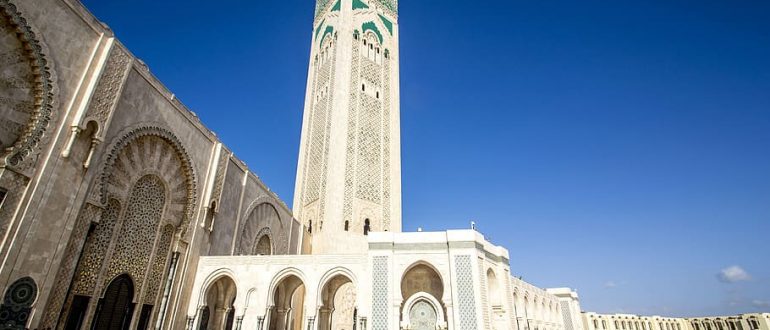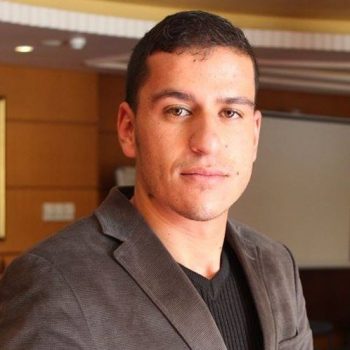
Morocco Reinforces its Faith-Based Diplomacy in West Africa
Faith-based diplomacy has become an increasingly competitive market where countries are using their religious background as a soft power tool. Morocco is one of those countries that tries to use its special way of Islam to influence countries in West Africa. With the majority of the population being Muslims, Morocco’s way of Islam adopts the Maliki rite, Ashʿari doctrine, spiritual Sufism, and the King as the head of the religious institution being the ‘commander of the faithful’. This formula of Islam is considered moderate which makes Morocco try to use it with West African countries.
Morocco’s ties with West Africa go back to centuries and started through trade which has also always been a way to spread Islam to West Africa as well as Sufism . Until now, members of Tijaniya Tariqa (Tijaniya Path), one of the main schools of Sufism that is present in West Africa, visit the tomb of its founder Ahmed Tijani in Fes, Morocco in a pilgrimage like visit. In the 80s and as a response to its withdrawal from the African Union, Morocco has strengthened its religious connection with West African countries notably Senegal and the Ivory Coast.
A New Religious Strategy for West Africa
However, recently, Morocco has started a new religious strategy in West Africa that goes with its new vision about the role Morocco can play on the continent. The religious diplomacy is based on the King as Amir Al Muminin (Commander of the Faithful) and spiritual leader, new institutions, and using nonstate actors . For example, since becoming the King of Morocco in 1999, Mohammed the Sixth has paid more than 50 visits to 29 African countries. During these visits, he led Friday prayers, met with religious leaders, and gave away the Quran, the holy book. Those visits and the way he was received by the people of those Muslim majority countries hint at the transnational spiritual authority of the King.
Morocco’s new faith-based diplomacy uses religious and educational institutions as well. For example, the Mohamed VI Institute for the Training of Imams, Mochidines (male clerics), and Morchidates (female clerics) to train African Imams on moderate Islam. Morocco has signed a treaty to train 500 Malian Imams in 2013, and now other African and some European countries are interested in training their Imams in Morocco as well . Besides institutions, non-state actors are also used by Morocco. For example, in 2016, Morocco launched the Mohammed VI Foundation for African Ulema (Muslim Scholars). The reasons of its creation “are set out in its preamble, based on the religious and cultural ties that bind together the Kingdom of Morocco and those of the African countries, and by virtue of what the current circumstances require in terms of finding a scope for cooperation between the Islamic scholars of Morocco and those of the African countries.”
The Goal of Morocco’s Religious Diplomacy
Morocco’s faith-based diplomacy has some objectives to achieve. First, it is a tool to counter extremism. After 9/11 and the bombing attacks in 2003 in Casablanca, Morocco has started to use the religious aspect in its efforts to fight extremism internally but also in the Sahel region. Morocco believes that the military approach alone may not be beneficial to deal with extremism and that the spiritual side is necessary.
Second, by having a formula to counter terrorism in the countries of West Africa, Morocco tries to influence the public in those countries as well as the governments through rising as a country of coexistence and moderate Islam, and thus, is seen positively.
Third, Morocco tries to rise as a regional power and as a potential partner to the United States and the European Union for the security issues in the region through its use of religious diplomacy as public diplomacy. Besides that, it can be a bridge between Africa and Europe. This importance can be used by Morocco as a bargaining chip to serve its national interest. The issue of Western Sahara is among the top priorities that Morocco’s faith-based diplomacy tries to score points in, especially after the challenges it faced with some EU countries who tried to challenge Morocco’s legitimacy to export products from the disputed area.
Thus, the ultimate goal of Morocco’s diplomacy in West Africa is to influence others and serve the national interest through rising as a regional power with a special formula to fight extremism.
The Challenges
It is still not clear whether Morocco’s efforts to use religion in its diplomacy has brought benefits to counter-terrorism. Moreover, Morocco’s religious diplomacy faces some external and internal challenges. Regarding the external challenges, there is a competition with other Muslim majority countries like Turkey, Saudi Arabia, Iran, and Algeria. Turkey presents itself as both an Islamic as well as a democratic country, while Saudi Arabia uses its monetary resources to advertise its Salafi version of Islam.
As for internal challenges, we may talk about youth unemployment in Morocco that can also lead to extremism because of the despair that unemployed young people can fall in. This unemployment is unlikely to get better due to the expected economic suffering in Morocco and the rest of the world is expected to face during and after this pandemic. Therefore, dealing with the post-Corona economic hardship and keep promoting religious diplomacy may not be an easy thing for Morocco.
Conclusion
Morocco has strengthened its faith-based diplomacy in West Africa which reveals new ambitions the country has to play in the continent. It bases its diplomacy on exporting its ‘moderate’ Islam to counter extremism. It aims at strengthening its place in the continent as a regional player and also be an irreplaceable partner in fighting extremism in the Sahel. Therefore, it can serve its national interest and especially the conflict over Western Sahara.
Morocco’s faith-based diplomacy is more likely to be further promoted in Africa as it strengthens its role in the continent. The historical ties -religious and economic- with West Africa help Morocco get a positive reception which may encourage Morocco to keep strengthening its diplomacy in this region of the continent. However, it is also expected that Morocco will face more competition from other Muslim majority countries like Turkey and Saudi Arabia. Also, youth unemployment- which may lead to extremism- needs to be dealt with to give more credibility to Morocco’s religious diplomacy.
Bibliography
Alaoui, Abdelmalek. 2015. Why Morocco Wants To Become A Major Islamic Training Hub. 31 March. Accès le 12 15, 2019. https://www.forbes.com/sites/abdelmalekalaoui/2015/03/31/why-morocco-wants-to-become-a-major-islamic-training-hub/#6ba35f4361e0.
Alaoui, Sarah. 2019. Morocco, commander of the (African) faithful? 8 April. Accès le 12 15, 2019. https://www.brookings.edu/blog/order-from-chaos/2019/04/08/morocco-commander-of-the-african-faithful/.
Hmimnat, Salim. 2018. «‘Spiritual security’ as a (meta-)political strategy to compete over regional leadership: formation of Morocco’s transnational religious policy towards Africa.» The Journal of North African Studies.
Lanza, Nazarena. 2013. «LIENS ET ECHANGES ENTRE LE MAROC ET L’AFRIQUE SUBSAHARIENNE.» HAL pp.21-35.
2016. Morocco seeks to assert its religious leadership. 25 February. Accès le 12 17, 2019. http://country.eiu.com/article.aspx?articleid=203972604&Country=Morocco&topic=Politics_1.
Mouahidi, Khalid Al. 2015. New Foundation for African Ulemas, another Pillar of Morocco’s Spiritual Diplomacy. 14 July. http://medafricatimes.com/6054-new-foundation-for-african-ulemas-another-pillar-of-moroccos-spiritual-diplomacy.html.
SILVA, THOMAS AWAZU PEREIRA DA. 2018. «Addressing the Youth.» Policy Center for New South 5-18.
2015. The Royal Initiative to Create the Mohammed VI Foundation of African Oulema. 13 July. https://www.fm6oa.org/en/introductory-paper-on-the-royal-initiative-for-the-creation-of-the-mohammed-vi-foundation-of-african-oulema/.
Disclaimer: The views and opinions expressed in this article are those of the author and do not necessarily reflect the opinion of CISS or its members.

Adnane Sounni
Adnane Sounni studies MA in International Studies and Diplomacy at Al Akhawayn University. He has been actively involved in international development projects through doing community development services in Morocco and Senegal, and environmental service in the United States. Adnane is interested in global affairs, especially development, security, and diplomacy, and how youths can play a role in it.
